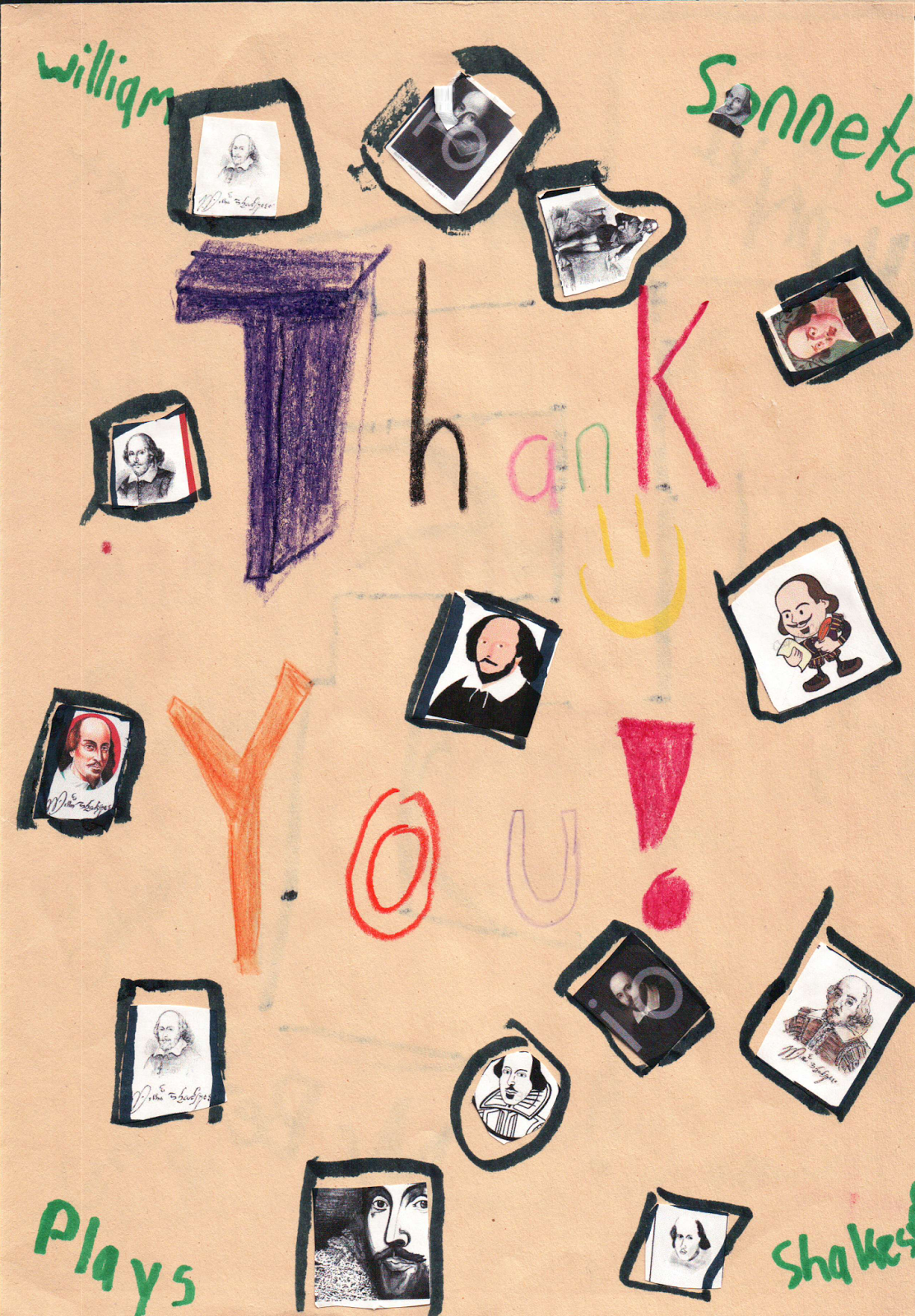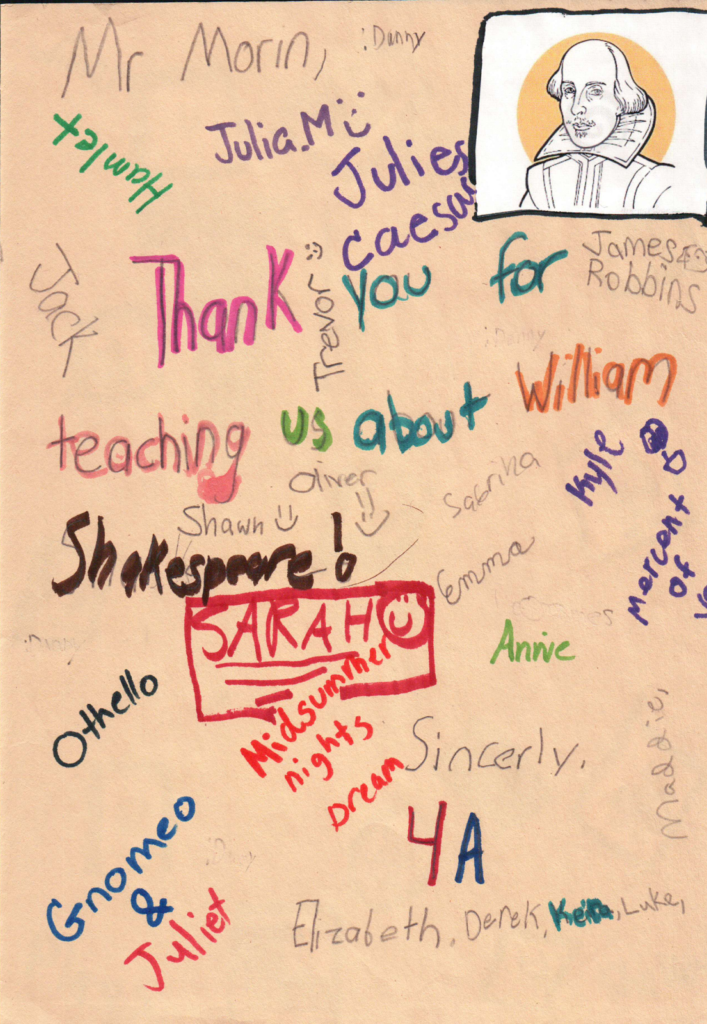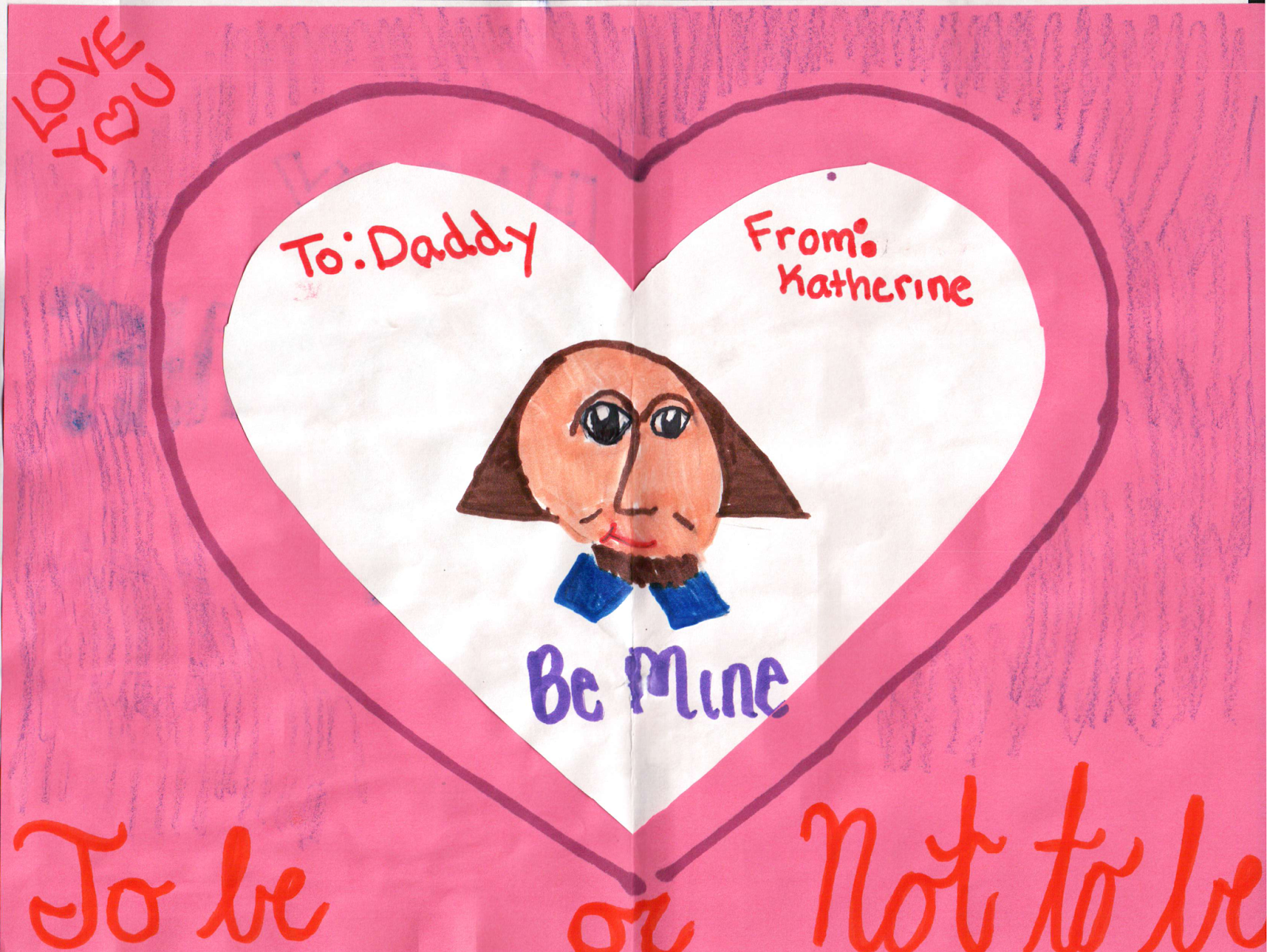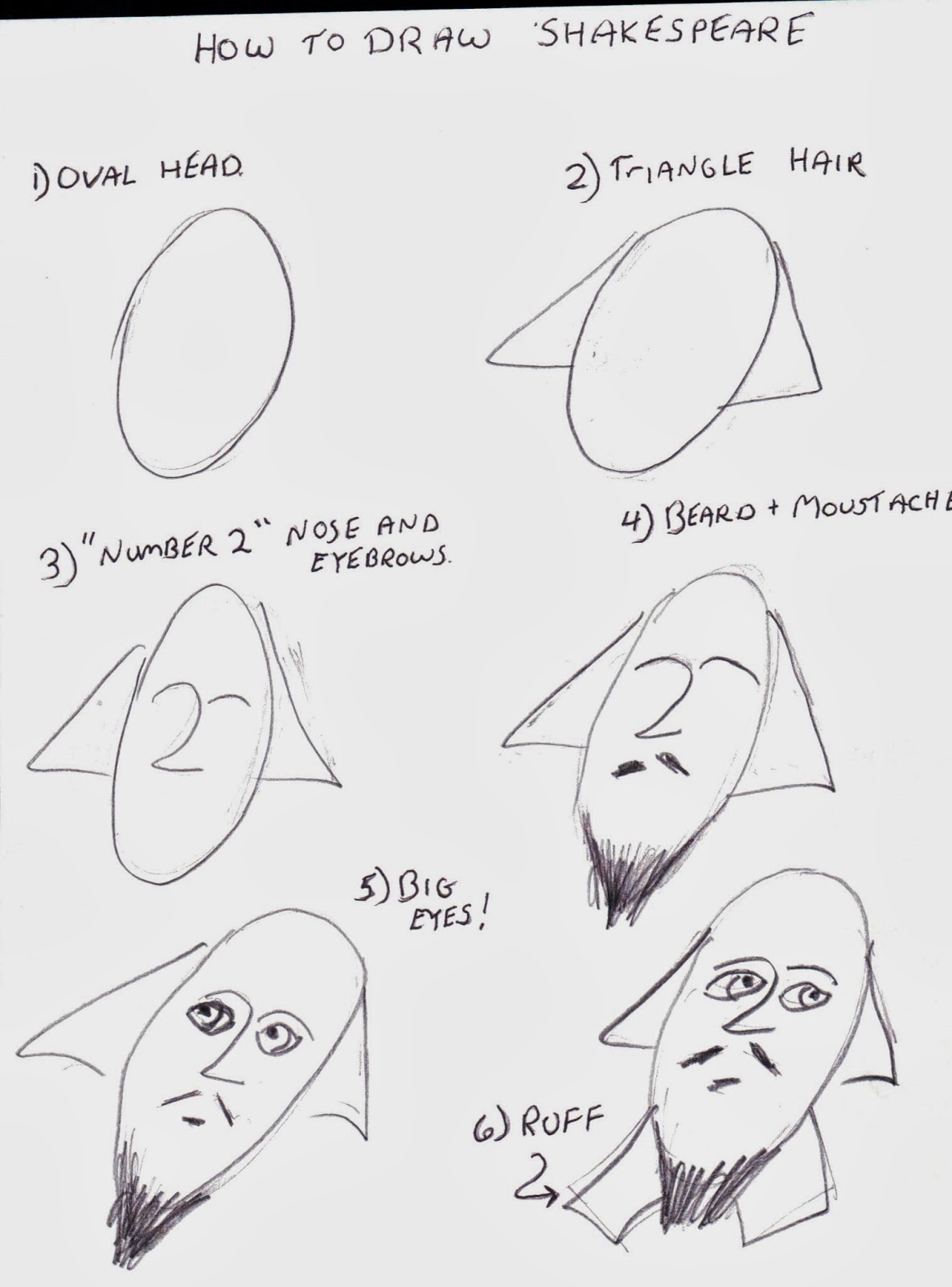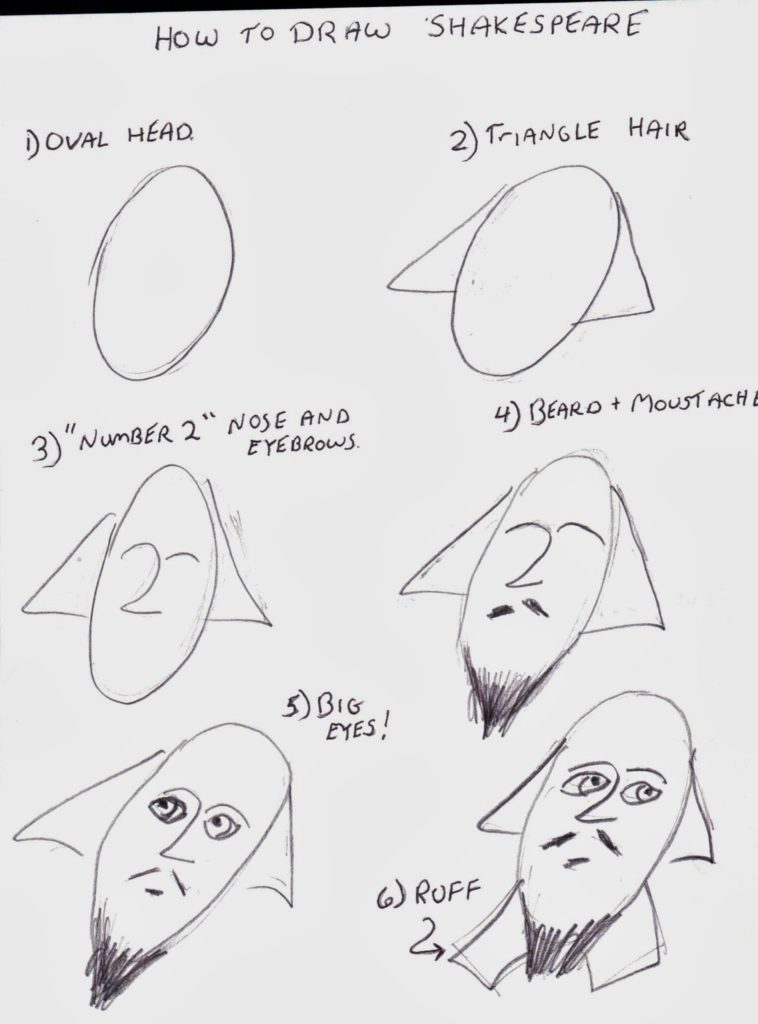After teaching my fourth graders the other day, my daughter kept asking me these mysteriously Shakespearean questions. “Daddy? Is Merchant of Venice a Shakespeare play?”
“Yes,” I’d reply, “Why do you ask?” Knowing that I hadn’t mentioned that one.
“You’ll see in a few days!” and then she’d run away. Then back, “What about Henry vee eye?”
“It’s pronounced Henry the Sixth, but yes, that’s one too. That was actually one of his first…”
“Ok, gotta go!” and off she’d run.
Look what I got from the entire class! This was actually on a gigantic card, but I couldn’t fit it all in my scanner:
I love some of the spelling (Julies Caesar, Mercent of Venice…) and the research that went into it, since I didn’t mention half those plays.
Thanks everybody! I’ll be back soon!

